Calcium acetate isn’t something you hear about often when talking about your eyes. Most people know it as a medication for kidney patients, not as something that affects vision. But if you’re taking calcium acetate - whether for high phosphorus levels or another reason - you might wonder: could this drug be helping or hurting your eyes?
What calcium acetate actually does
Calcium acetate is a prescription medication used mainly to bind phosphorus in the gut. When your kidneys aren’t working well, phosphorus builds up in your blood. High phosphorus can cause bone pain, itchy skin, and heart problems. Calcium acetate sticks to the phosphorus in your food so your body doesn’t absorb it. Instead, it passes out in your stool.
This drug is commonly prescribed to people with chronic kidney disease (CKD), especially those on dialysis. It’s not a vitamin. It’s not a supplement you take for strong bones. It’s a phosphate binder. And it’s not something you start without medical supervision.
Does calcium acetate help your eyes?
No direct link exists between calcium acetate and improved vision. There are no clinical studies showing that taking calcium acetate reduces cataracts, glaucoma, or macular degeneration. It doesn’t act on eye tissue. It doesn’t improve blood flow to the retina. It doesn’t lower eye pressure.
But here’s where things get indirect: high phosphorus levels - the very thing calcium acetate is meant to fix - can harm your eyes over time. When phosphorus rises too high, it can lead to calcium deposits in soft tissues. That includes blood vessels. And yes, that includes the tiny blood vessels in your eyes.
People with advanced kidney disease often develop retinopathy, a condition where blood vessels in the retina get damaged. High phosphorus and calcium imbalance are known contributors. So while calcium acetate doesn’t directly heal your eyes, it might help prevent further damage by keeping phosphorus under control.
Could calcium acetate hurt your eyes?
Yes, if taken incorrectly. Calcium acetate contains calcium. Too much calcium in your blood - called hypercalcemia - can cause problems. One rare but serious side effect is calcification of eye tissues. This means calcium crystals can form in the cornea, lens, or even the retina.
Calcium deposits in the cornea (called band keratopathy) can cause blurry vision, light sensitivity, and a gritty feeling in the eyes. It’s not common, but it’s been documented in patients with long-term kidney disease who also had uncontrolled calcium levels. If you’re taking calcium acetate and notice changes in your vision, don’t ignore it. Tell your doctor.
It’s also worth noting: calcium acetate doesn’t help if your body already has too much calcium. If you’re taking other calcium supplements, antacids, or even high-dose vitamin D, you could be pushing your calcium levels into the danger zone. That’s why blood tests are critical. Doctors check serum calcium, phosphorus, and parathyroid hormone levels regularly when you’re on this medication.

Who should be careful with calcium acetate and eye health?
Not everyone taking calcium acetate needs to worry about their eyes. But some groups are at higher risk:
- People with end-stage kidney disease on dialysis for more than 5 years
- Those already diagnosed with band keratopathy or other eye calcifications
- Patients taking multiple calcium-based phosphate binders (like calcium carbonate) at the same time
- Anyone with high vitamin D levels or overactive parathyroid glands
If you fall into one of these groups, your eye doctor should be in the loop. A simple slit-lamp exam can detect early calcium deposits in the cornea. Catching them early means you can adjust your meds before vision is affected.
What should you do if you’re on calcium acetate?
Here’s a practical checklist:
- Take it with meals. Calcium acetate only works if it’s in your gut when you eat. Taking it on an empty stomach won’t bind phosphorus.
- Don’t double up. If you miss a dose, don’t take two at once. That spikes calcium levels fast.
- Get blood tests every 1-3 months. Ask for serum calcium, phosphorus, and PTH. Normal calcium range is 8.5-10.2 mg/dL. Anything above 10.5 needs attention.
- Watch for eye symptoms. Blurry vision, halos around lights, redness, or a gritty feeling? Tell your doctor. Don’t wait.
- Review all supplements. Are you taking calcium pills, vitamin D, or antacids like Tums? These can add up. Your doctor may need to cut them out.
Many patients assume that because calcium acetate is a "calcium" product, it’s good for bones - so they take extra. That’s a dangerous mistake. The goal isn’t to raise calcium. The goal is to lower phosphorus. Too much calcium just trades one problem for another.
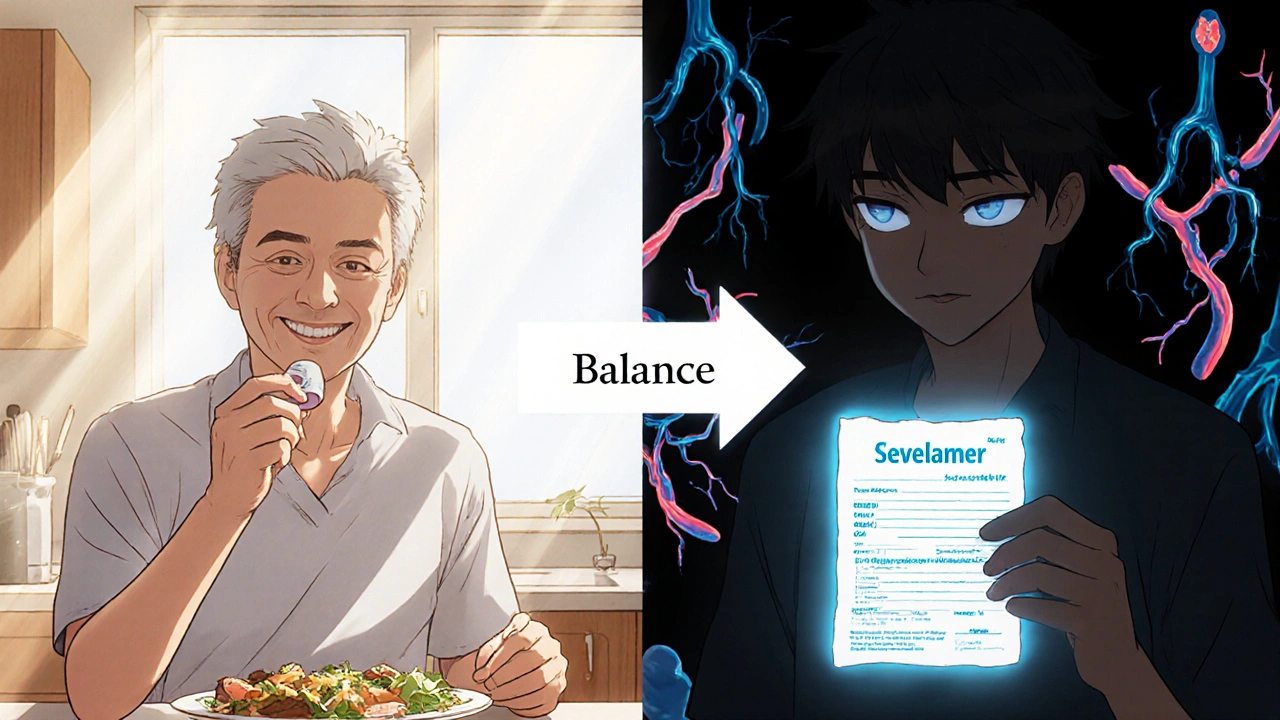
Alternatives to calcium acetate for eye safety
If you’re worried about calcium buildup in your eyes, ask your doctor about non-calcium phosphate binders:
- Sevelamer (Renvela, Renagel) - binds phosphorus without adding calcium. Often preferred for patients with high calcium or vascular calcification.
- Lanthanum carbonate (Fosrenol) - another non-calcium option. Taken as chewable tablets.
- Iron-based binders (e.g., sucroferric oxyhydroxide) - newer options that also help with anemia.
These alternatives don’t carry the same risk of eye calcification. They’re not cheaper, but they’re safer for long-term use if you’re already showing signs of calcium overload.
What the research says
A 2022 study in the Journal of the American Society of Nephrology followed 1,200 dialysis patients for 5 years. Those on calcium-based binders had a 37% higher chance of developing corneal calcifications than those on sevelamer. The risk went up with longer use and higher serum calcium levels.
Another study from the British Journal of Ophthalmology in 2023 looked at 89 patients with band keratopathy. 78% of them had chronic kidney disease and were on calcium acetate or similar drugs. In 62% of cases, vision improved after switching to non-calcium binders and lowering calcium intake.
That’s not a coincidence. It’s a pattern. Calcium acetate is effective at lowering phosphorus - but it comes with trade-offs. Your eyes are one of them.
Bottom line
Calcium acetate doesn’t improve your eyesight. But it might protect your eyes - if used correctly. The real danger isn’t the drug itself. It’s the imbalance it can cause if not monitored. High phosphorus hurts your heart and bones. Too much calcium can hurt your eyes.
If you’re on this medication, your job isn’t just to take it. It’s to stay informed. Track your labs. Watch your symptoms. Ask about alternatives. And if your vision changes - even slightly - speak up. Your eyes are watching you, too.

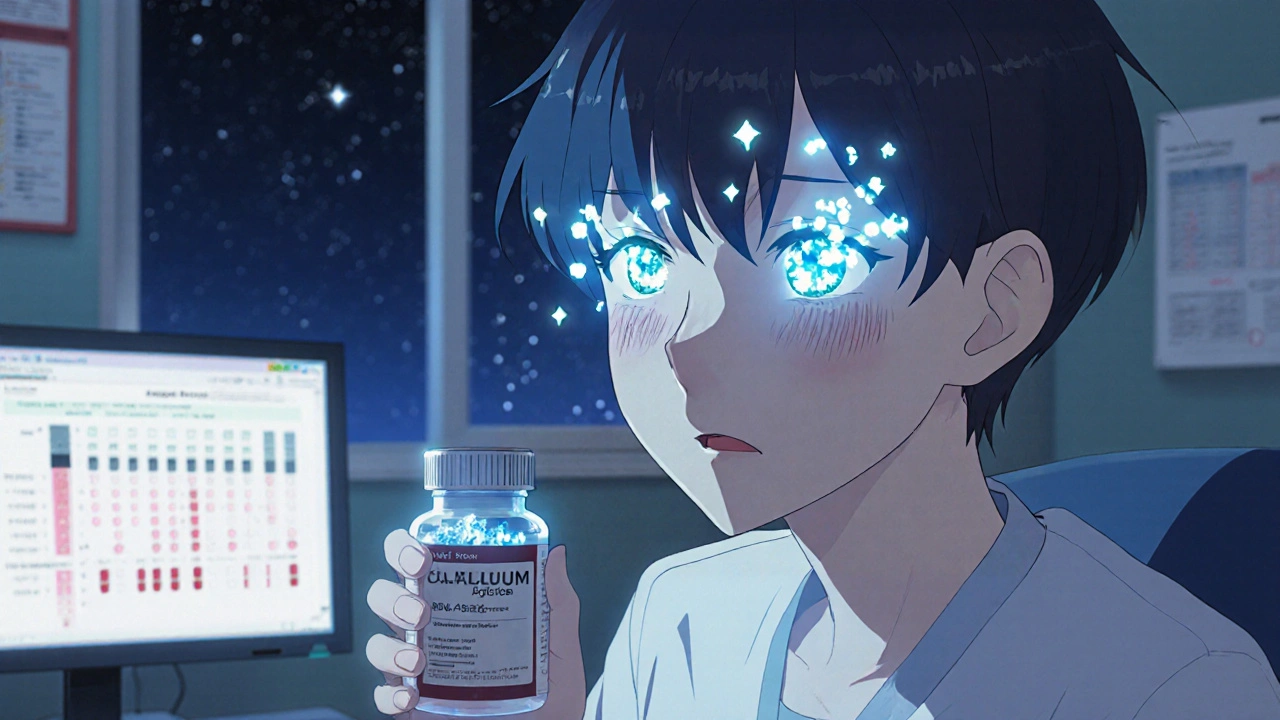
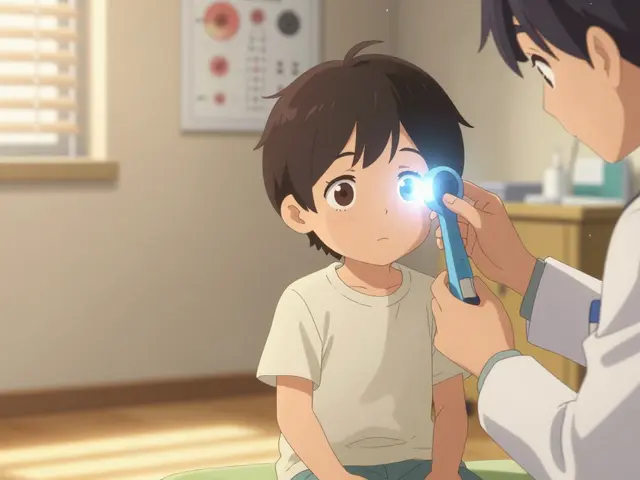
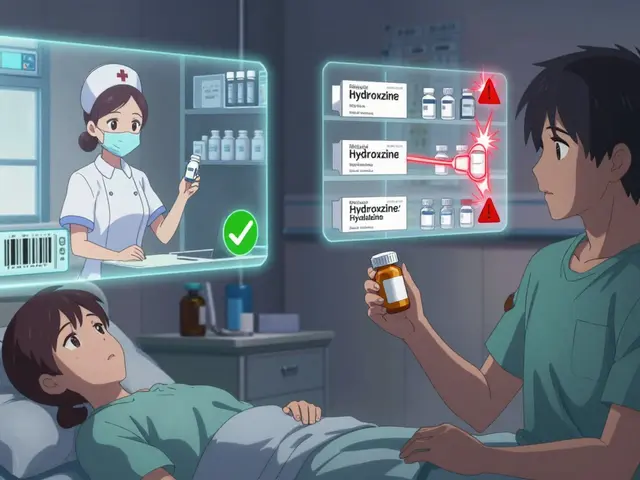


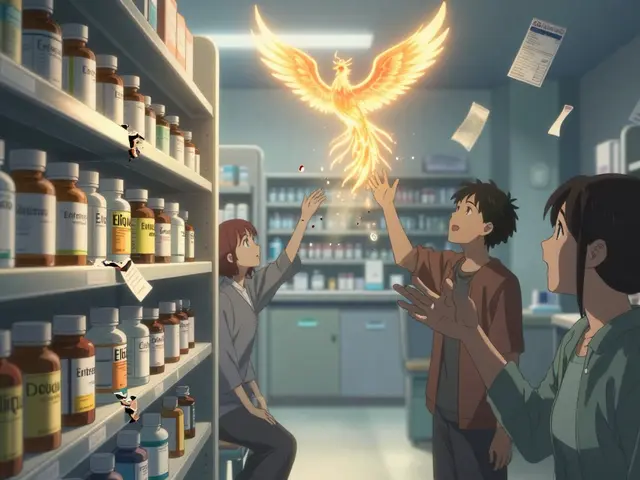
Alex Hundert
October 30, 2025 AT 01:54 AMMan, I never thought about how phosphate binders could mess with your eyes. I’ve been on calcium acetate for 6 years now and my vision’s been kinda blurry lately. Thought it was just aging - maybe it’s this. Gonna book an eye doc ASAP.
Thanks for laying this out so clear.
Emily Kidd
October 30, 2025 AT 07:04 AMomg i just realized i’ve been taking tums with this and didnt even think twice. my eyes have been burning lately too. this is wild. gonna call my nephrologist tomorrow. ty for the heads up!!
Justin Cheah
October 31, 2025 AT 00:47 AMLet me guess - the pharmaceutical industry is pushing calcium acetate because it’s cheaper than sevelamer and they don’t give a damn about your corneas. You think this is an accident? Nah. It’s a calculated trade-off. They profit from dialysis, they profit from cataract surgeries, they profit from glaucoma meds. And you? You’re the walking cash cow with a calcium-crusted cornea. The FDA doesn’t regulate this stuff because they’re on the payroll. Look up the revolving door between Big Pharma and the nephrology board. It’s not conspiracy - it’s corporate logistics.
And don’t even get me started on how they market this as a ‘bone health’ solution. Bone health? Bro, your eyes are turning into chalk.
caiden gilbert
November 1, 2025 AT 11:41 AMIt’s wild how a drug meant to save your kidneys could quietly turn your eyes into a mineral deposit exhibit. Like your body’s trying to fossilize itself from the inside. I used to think ‘calcium’ meant ‘good for bones’ - now I see it’s just a polite way of saying ‘crystalline chaos.’
Still, I’m glad someone finally said it out loud. The silent damage is the worst kind.
phenter mine
November 2, 2025 AT 09:47 AMim so glad i read this i was gonna start taking extra calciuim pills becuase i thought it was good for my bones but now im not so sure. gonna get my blood work done this week. thanks!!
Aditya Singh
November 4, 2025 AT 04:58 AMActually, you’re all missing the primary mechanism. The real issue isn’t calcium acetate - it’s the underlying FGF23 resistance in CKD patients that drives secondary hyperparathyroidism, which in turn dysregulates vitamin D metabolism and leads to ectopic calcification via the RANKL/OPG pathway. The corneal deposits? That’s just the tip of the iceberg. The real problem is the systemic vascular calcification burden that precedes ocular manifestations by 18–24 months. If you’re not monitoring your coronary artery calcium score, you’re not doing your due diligence. Also, sevelamer has its own issues - aluminum contamination in some generics, and it’s a GI nightmare. Lanthanum? More expensive, less bioavailable. The real solution is a personalized phosphate-binding algorithm based on fractional excretion rates. But no one wants to do the math.
Katherine Reinarz
November 5, 2025 AT 19:57 PMMY EYES HAVE BEEN ON FIRE FOR MONTHS AND NO ONE WOULD LISTEN!! I TOLD MY DOCTOR AND HE SAID IT WAS ‘ALLERGIES’ AND GAVE ME LUBRICATING DROPS!! I’M CRYING RIGHT NOW BECAUSE THIS POST IS THE FIRST THING THAT MADE SENSE!! I’M SWITCHING TO SEVELAMER TOMORROW AND I’M TELLING EVERYONE!!
John Kane
November 6, 2025 AT 03:24 AMHey everyone - I’ve been on dialysis for 8 years now, and I’ve seen a lot of folks struggle with this exact issue. Let me tell you, this post? Spot on. I switched from calcium acetate to sevelamer after my optometrist spotted early band keratopathy during a routine check-up. It wasn’t dramatic - just a faint haze near the edge of my cornea. But we caught it early.
And yes, it’s scary. But here’s the thing: you’re not alone. Talk to your nephrologist. Ask for a referral to an ophthalmologist who’s worked with CKD patients. Most of them know exactly what to look for. And if your doctor brushes you off? Find a new one. Your eyes matter just as much as your kidneys.
Also - if you’re in the US, there are free eye screening programs for dialysis patients through the National Kidney Foundation. Just ask your social worker. You’ve done the hard part - now protect what you’ve got left.
Stay strong, stay informed. You’re not just surviving. You’re learning how to thrive.
Callum Breden
November 7, 2025 AT 07:46 AMIt is profoundly irresponsible to present calcium acetate as a viable long-term option for phosphate control in the context of end-stage renal disease. The literature is unequivocal: calcium-based binders are associated with increased all-cause mortality and vascular calcification, and ocular calcification is merely a visible manifestation of systemic pathology. The fact that this drug remains first-line in many protocols speaks to institutional inertia and a lack of evidence-based stewardship. Furthermore, the author’s checklist is dangerously incomplete - no mention of serum calcium-phosphorus product thresholds, no reference to KDIGO guidelines, and no discussion of the role of vitamin K2 in vascular protection. This is not medical advice. It is a public health hazard dressed in bullet points.
Mansi Gupta
November 8, 2025 AT 08:20 AMThank you for writing this. I’ve been hesitant to bring up eye concerns with my nephrologist because I didn’t want to seem like I was overreacting. But now I realize that these symptoms are real, and they’re connected. I’ll be scheduling an eye exam next week. I appreciate the practical checklist - it gives me something concrete to discuss.
Also, I’ve been on sevelamer for a year now and my vision has improved slightly. Not dramatically, but enough that I notice the difference in bright light. It’s a small win, but it matters.
Erin Corcoran
November 10, 2025 AT 02:31 AMomg this is so helpful!! 💙 i’ve been on calcium acetate since 2020 and my eyes feel like sandpaper sometimes. i thought it was dryness from being on dialysis… but now i’m scared (in a good way??) bc i can fix this. going to ask my dr about sevelamer and get my calcium levels checked. you’re a lifesaver!! 🙏
shivam mishra
November 11, 2025 AT 22:14 PMAs someone who’s been managing CKD for over a decade, I can say this: calcium acetate works - but it’s like using duct tape to fix a leaking pipe. It holds things together for a while, but the real fix is replacing the pipe. Non-calcium binders aren’t just ‘alternatives’ - they’re the upgrade. I switched to lanthanum carbonate after my corneal deposits were confirmed. No more gritty eyes. No more halos. And my phosphate levels? Even better.
Also, if you’re in India, many government hospitals now offer sevelamer under subsidized programs. Ask your nephrologist. You don’t have to suffer because of cost.
Scott Dill
November 13, 2025 AT 19:45 PMWait - so this stuff can actually make your eyes turn into little calcium crystals? That’s insane. I thought it was just for kidneys. I’m gonna go check my meds right now. Thanks for the wake-up call - I was just blindly following my script. Now I’m gonna be the guy who asks all the annoying questions at my next appointment. 🙌
Arrieta Larsen
November 15, 2025 AT 09:31 AMMy mom’s on this. I’m printing this out for her doctor.
Alex Hundert
November 16, 2025 AT 20:41 PMJust got back from my eye doc. Band keratopathy - confirmed. Calcium levels were at 10.8. They’re switching me to sevelamer next week. I didn’t realize how bad it was until I saw the photos. I’m scared but also… relieved? Like finally knowing what’s going on.
Thanks to everyone who shared their stories. You saved me from another year of blurry vision.